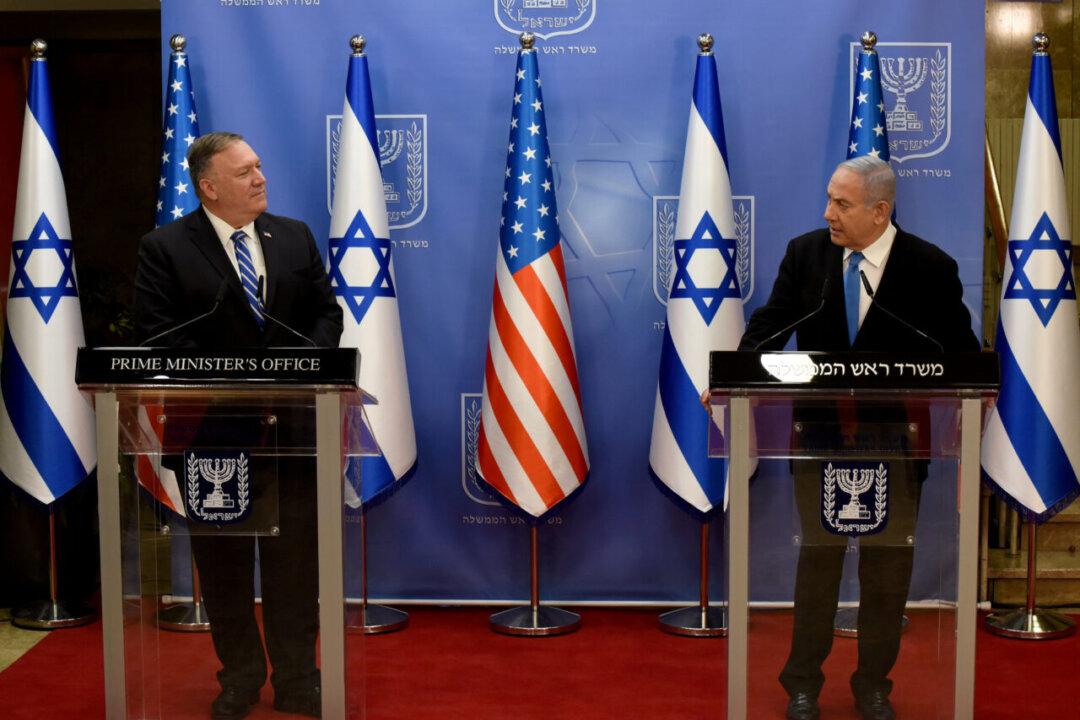The United States will ensure that Israel retains a military advantage in the Middle East under any future U.S. arms deals with the United Arab Emirates, U.S. Secretary of State Mike Pompeo said on Aug. 24.
“The United States has a legal requirement with respect to the qualitative military edge,” Pompeo told reporters after a meeting with Prime Minister Benjamin Netanyahu. “We will continue to honor that.”





